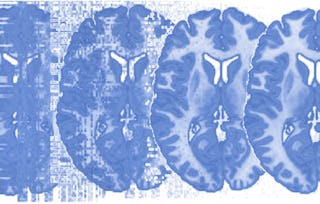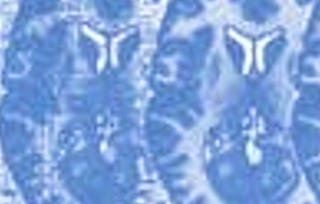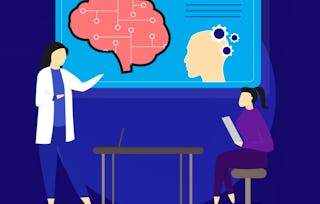Neuroimaging methods are used with increasing frequency in clinical practice and basic research. Designed for students and professionals, this course will introduce the basic principles of neuroimaging methods as applied to human subjects research and introduce the neuroscience concepts and terminology necessary for a basic understanding of neuroimaging applications. Topics include the history of neuroimaging, an introduction to neuroimaging physics and image formation, as well as an overview of different neuroimaging applications, including functional MRI, diffusion tensor imaging, magnetic resonance spectroscopy, perfusion imaging, and positron emission tomography imaging. Each will be reviewed in the context of their specific methods, source of signal, goals, and limitations. The course will also introduce basic neuroscience concepts necessary to understand the implementation of neuroimaging methods, including structural and functional human neuroanatomy, cognitive domains, and experimental design.

Ends soon: Gain next-level skills with Coursera Plus for $199 (regularly $399). Save now.

Fundamental Neuroscience for Neuroimaging
This course is part of Neuroscience and Neuroimaging Specialization

Instructor: Arnold Bakker
82,373 already enrolled
Included with
(2,294 reviews)
Skills you'll gain
Details to know

Add to your LinkedIn profile
4 assignments
See how employees at top companies are mastering in-demand skills

Build your subject-matter expertise
- Learn new concepts from industry experts
- Gain a foundational understanding of a subject or tool
- Develop job-relevant skills with hands-on projects
- Earn a shareable career certificate

There are 4 modules in this course
This week will introduce basic terminology in neuroscience and structural neuroanatomy of the human brain.
What's included
5 videos1 assignment4 discussion prompts
This week will introduce functional neuroanatomy of the human brain including cognitive domains and neuropsychological assessment of cognition.
What's included
5 videos1 assignment5 discussion prompts
This week will introduce the principles of neuroimaging and applications in structural and functional neuroimaging.
What's included
5 videos1 assignment5 discussion prompts
This week will introduce experimental design in functional neuroimaging and special methods in neuroimaging, including functional connectivity MRI, diffusion tensor imaging and spectroscopy imaging.
What's included
5 videos1 assignment4 discussion prompts
Earn a career certificate
Add this credential to your LinkedIn profile, resume, or CV. Share it on social media and in your performance review.
Instructor

Offered by
Explore more from Basic Science
 Status: Free Trial
Status: Free TrialJohns Hopkins University
 Status: Free Trial
Status: Free TrialJohns Hopkins University
 Status: Free Trial
Status: Free TrialJohns Hopkins University
 Status: Free Trial
Status: Free TrialJohns Hopkins University
Why people choose Coursera for their career




Learner reviews
2,294 reviews
- 5 stars
73.88%
- 4 stars
20.61%
- 3 stars
4.18%
- 2 stars
0.65%
- 1 star
0.65%
Showing 3 of 2294
Reviewed on Apr 7, 2019
I am an engineering graduate and wanted to learn fundamentals of Neuroscience for Neuroimaging studies. This course helped me a lot, highly recommended as an introductory course.
Reviewed on May 10, 2020
I recently completed an internship in a pediatric radiology lab in the DC Metro area. This course was great supplement to the knowledge received during that experience. Thank you!
Reviewed on Jun 1, 2020
Brilliant course, it has been complimentary towards my masters dissertation of studying neurocriminology within the UK. Thank you for providing an informative course.
Frequently asked questions
To access the course materials, assignments and to earn a Certificate, you will need to purchase the Certificate experience when you enroll in a course. You can try a Free Trial instead, or apply for Financial Aid. The course may offer 'Full Course, No Certificate' instead. This option lets you see all course materials, submit required assessments, and get a final grade. This also means that you will not be able to purchase a Certificate experience.
When you enroll in the course, you get access to all of the courses in the Specialization, and you earn a certificate when you complete the work. Your electronic Certificate will be added to your Accomplishments page - from there, you can print your Certificate or add it to your LinkedIn profile.
Yes. In select learning programs, you can apply for financial aid or a scholarship if you can’t afford the enrollment fee. If fin aid or scholarship is available for your learning program selection, you’ll find a link to apply on the description page.





